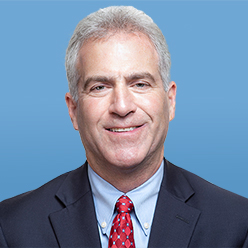With massive protests continuing in Hong Kong against China’s efforts to erode its freedoms, Washington is missing a sizable opportunity to promote our ideals, encourage democratic forces elsewhere, and leverage Beijing’s need for a trade deal.
Of late, President Donald Trump has sidestepped the matter and forced other administration officials to do the same. Trump reportedly assured China’s autocratic leader, Xi Jinping, in recent days that he would avoid criticizing Beijing over Hong Kong in order to advance trade talks, and the State Department prevented outgoing U.S. Consul General Kurt Tong from criticizing China over Hong Kong as part of a farewell address.
Trump’s approach to Hong Kong is part of a broader U.S. strategy of sacrificing human rights at the altar of trade. Vice President Mike Pence had planned to echo the criticism he leveled at Beijing last fall over its brutal suppression of Muslim Uighurs who seek to practice their faith, but he changed course and remained silent last month as Washington and Beijing sought to reignite trade talks.
The President’s reluctance to speak out for Hong Kong’s protestors is particularly ill-timed, for it comes as China cracks down more harshly on freedom at home while promoting its authoritarian model of governance abroad as an alternative to U.S.-led freedom and democracy — thus challenging U.S. influence in Asia and elsewhere. That this year marks the 30th anniversary of Beijing’s crackdown on protestors in Tiananmen Square makes Trump’s silence even more painful.
Moreover, Hong Kong may be a particularly bad place for Trump to take a pass on defending freedom because that city has come to symbolize freedom, ranking first in the Heritage Foundation’s 2019 Index of Economic Freedom — and at a time when the United States, the free world’s leader, languishes at number 12.
In the face of massive protests, with one seventh of the city’s seven million people reportedly participating, Hong Kong leader Carrie Lam temporarily shelved a bill that would have let her government extradite suspects to face trial in China, where they would not enjoy the same legal rights as in Hong Kong.
Since then, protestors have continued their efforts and expanded their demands, calling for an independent commission to investigate the police response to the protests and for the right to elect Hong Kong’s leader. Rather than elected in a national referendum, Lam was installed by a panel of 1,200 mostly pro-China elites.
The protests — like the failed push for democratic reforms in 2014 as well as protests of earlier years — reflect concerns that, since the 1997 agreement under which Britain returned Hong Kong to China, Beijing has increasingly sought to curtail its freedoms.
To be sure, a U.S. effort to support Hong Kong’s protestors could leave them exposed if Washington repeats its mistakes of the past.
For instance, in Hungary in 1956, with students and others protesting for more freedom, the broadcasts of Radio Free Europe suggested that Washington would respond if the Soviets stepped in. When Moscow did so and Washington stayed back, it left a trail of anger that lasted for decades.
Similarly, in Iraq in 1991, President George H. W. Bush seemed to suggest after U.S. forces dislodged Saddam Hussein’s military from Kuwait that Washington would provide tangible support if Iraq’s people sought to overthrow Saddam. When Shi’ites in southern Iraq and Kurds in the north launched insurrections to do so, however, Saddam brutally suppressed the uprisings as Washington again watched from the sidelines.
But if Washington should be careful not to promise what it won’t deliver, it also should not be silent.
In the case of Hong Kong, the United States may be missing an opportunity not just to express its values but to achieve its economic goals. That’s because however much a trade war would threaten the economies of all involved parties over the long term, the United States seems to have some short-term leverage over China because the latter needs a trade deal more than the former.
Partly due to trade tensions between the two nations, China’s economy grew in the second quarter of 2019 at it slowest pace in more than a quarter-century, and much of that growth may have occurred early in the quarter. Meanwhile, U.S. manufacturers are shifting their overseas production out of China to avoid tariffs of up to 25 percent that Trump slapped on some $250 billion in imports from China.
Rather than sidestep human rights concerns in the interest of a trade deal, Trump would be better advised to seek assurances about freedom in Hong Kong before giving Beijing what it very much wants.
Lawrence J. Haas, senior fellow at the American Foreign Policy Council, is the author of, most recently, "Harry and Arthur: Truman, Vandenberg, and the Partnership That Created the Free World."
